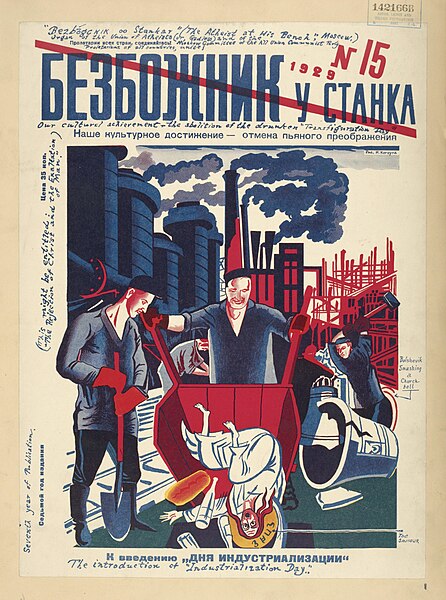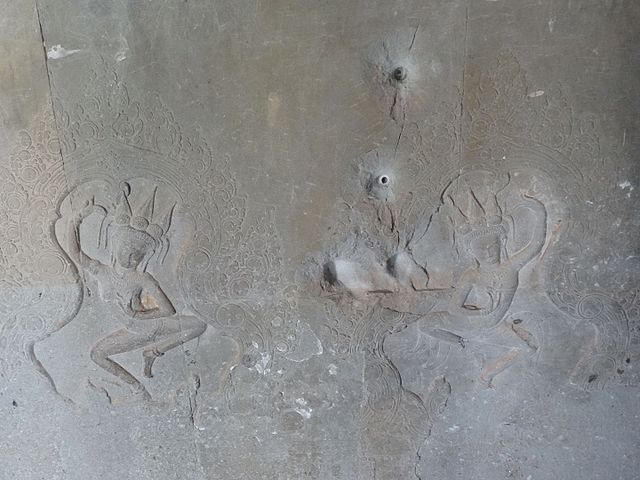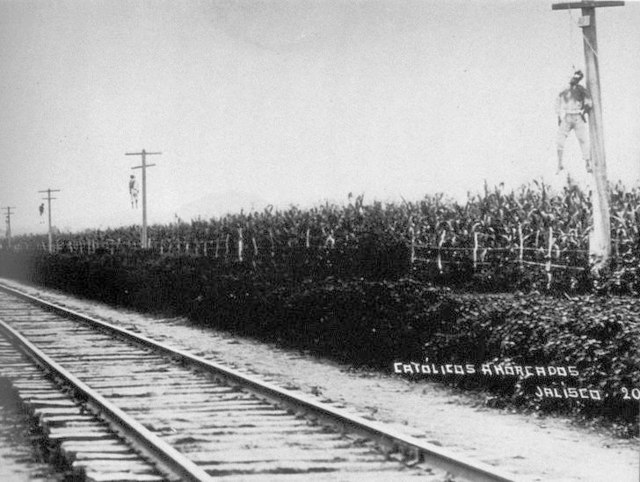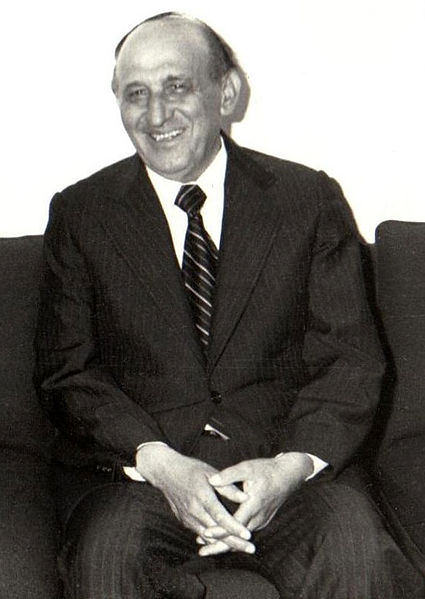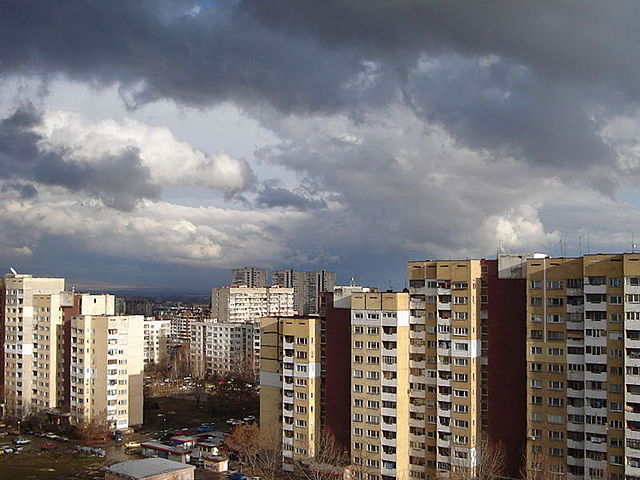State atheism or atheist state is the incorporation of hard atheism or non-theism into political regimes. It is considered the opposite of theocracy and may also refer to large-scale secularization attempts by governments. To some extent, it is a religion-state relationship that is usually ideologically linked to irreligion and the promotion of irreligion or atheism. State atheism may refer to a government's promotion of anti-clericalism, which opposes religious institutional power and influence in all aspects of public and political life, including the involvement of religion in the everyday life of the citizen. In some instances, religious symbols and public practices that were once held by religions were replaced with secularized versions of them. State atheism in these cases is considered as not being politically neutral toward religion, and therefore it is often considered non-secular.
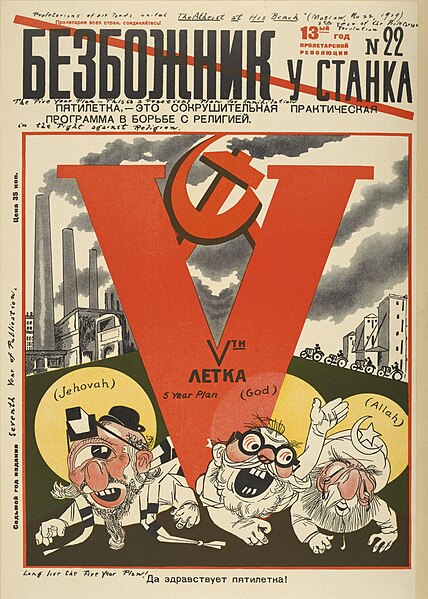
Cover of Bezbozhnik in 1929, the magazine of the Society of the Godless. The first five-year plan of the Soviet Union is shown crushing the gods of the Abrahamic religions.
1929 cover of the Soviet magazine Bezbozhnik ("The Atheist"), in which a group of industrial workers are depicted throwing Jesus Christ in the trash
Khmer Rouge bullet holes left at the Angkor Wat temple
Cristeros hanged in Jalisco
People's Republic of Bulgaria
The People's Republic of Bulgaria was the official name of Bulgaria when it was a socialist republic from 1946 to 1990, ruled by the Bulgarian Communist Party (BCP) together with its coalition partner, the Bulgarian Agrarian People's Union. Bulgaria was closely allied and one of the most loyal satellite states of the Soviet Union during the Cold War, sometimes being called the 16th Soviet Republic rather than an independent country. Bulgaria was also part of Comecon as well as a member of the Warsaw Pact. The Bulgarian resistance movement during World War II deposed the Kingdom of Bulgaria administration in the Bulgarian coup d'état of 1944 which ended the country's alliance with the Axis powers and led to the People's Republic in 1946.
1961 USSR stamp marking the 15th anniversary of the People's Republic of Bulgaria
Georgi Dimitrov, leader of the Bulgarian Communist Party from 1946 to 1949
Todor Zhivkov
Pre-fabricated apartment blocks in Mladost, Sofia


